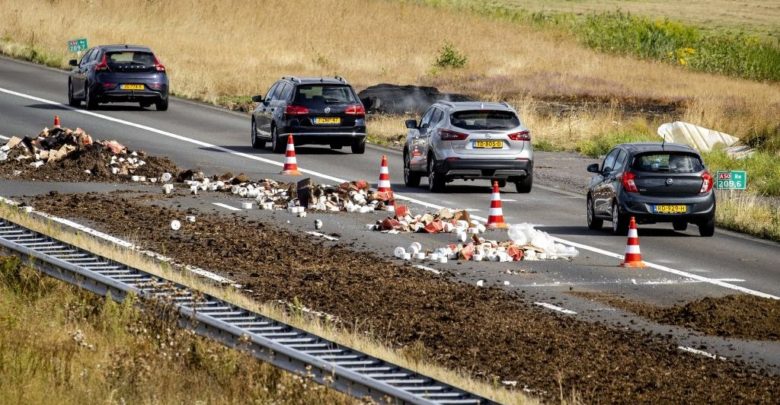Dutch Farmers Renew Protests, Dumping Manure, Trash on Roads

THE HAGUE, Netherlands — Dutch farmers resumed protests at government plans to reduce nitrogen emissions Wednesday by dumping manure and garbage on highways and setting fires alongside roads.
Authorities said that several roads in eastern and central Netherlands had been blocked at the beginning of the morning. The fire service rushed to remove traffic as it grew. Some roads were likely to remain blocked for hours.
Dutch media reported that at one location, a sign was left behind that said: “Sorry for the inconvenience, Rutte IV is driving us to despair,” a reference to Prime Minister Mark Rutte’s government, the fourth coalition he has led.
The latest demonstrations in a summer of discontent came a day after a government-appointed mediator sent invitations to farmers’ organizations to discuss with the country’s ruling coalition ways of reducing nitrogen emissions.
Learn more Climate Change: The Most Important Solutions to Save the Earth
“I see the talks as a turning point: breaking the deadlock together,” mediator Johan Remkes said. “The cabinet has assured me that there is room and joint solutions are possible.”
Some farmers have rejected the appointment of Remkes as an independent mediator because he is a member of Prime Minister Mark Rutte’s center-right political party and a former deputy prime minister.
Farmers are upset at the government’s targets to reduce nitrogen oxide and ammonia emissions. They claim this threatens their farming livelihood and could be forced out of business.
According to the government emissions of ammonia (from livestock) and nitrogen oxide must be dramatically reduced in areas near natural habitats that make up the network of protected habitats across Europe, where there are 27 member countries.
The ruling coalition wants to cut emissions of pollutants by 50% nationwide by 2030, calling the measure an “unavoidable transition” to improve soil, air and water quality in a nation known for its intensive farming practices. It asked the provincial authorities to prepare plans to lower emissions, and allocated an additional 24.3 billion euro ($24.6 million) to finance these changes.
Learn more How Organic Farming Worsened Sri Lanka’s Crisis
Farmers feel unfairly targeted. However, other industries such as construction, transport and aviation also contribute to carbon emissions, and are not subject to more stringent regulations. A majority of farmers claim that the government has not given them an accurate picture about their futures in light of proposed reforms.
The farmers also blocked roads with their tractors earlier this year and stopped supermarket distribution centres from receiving goods.
Here are more must-read stories from TIME





